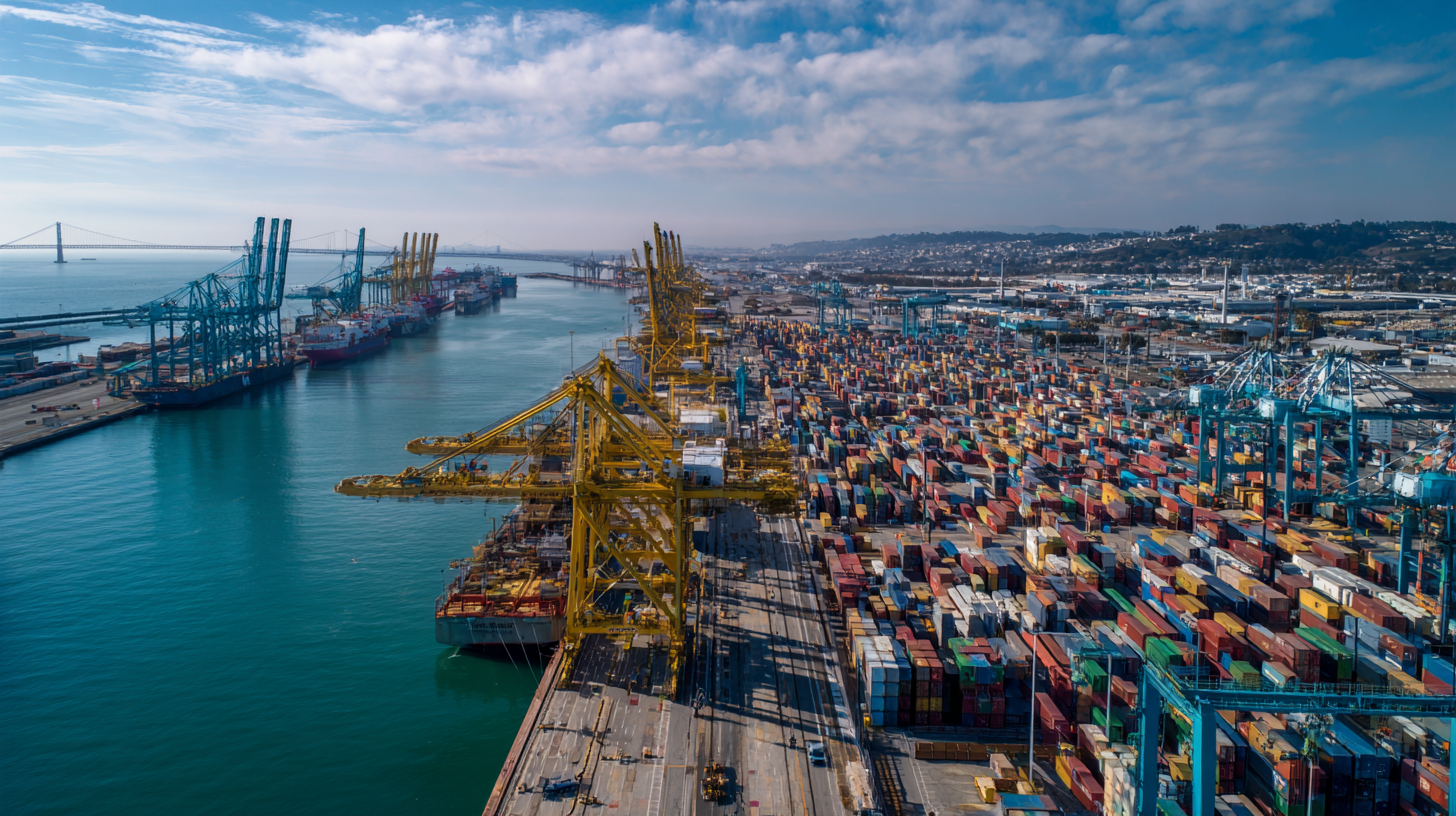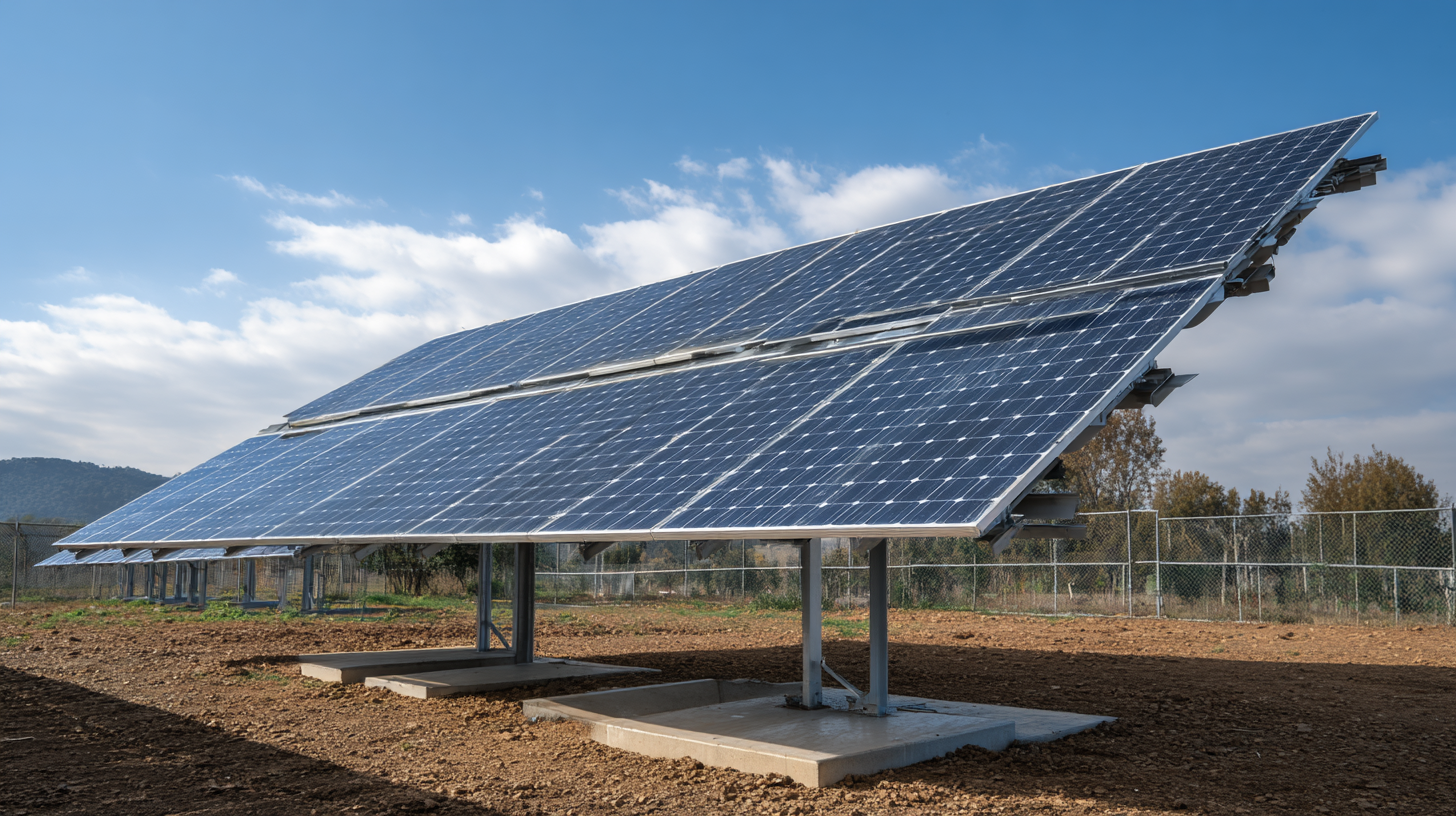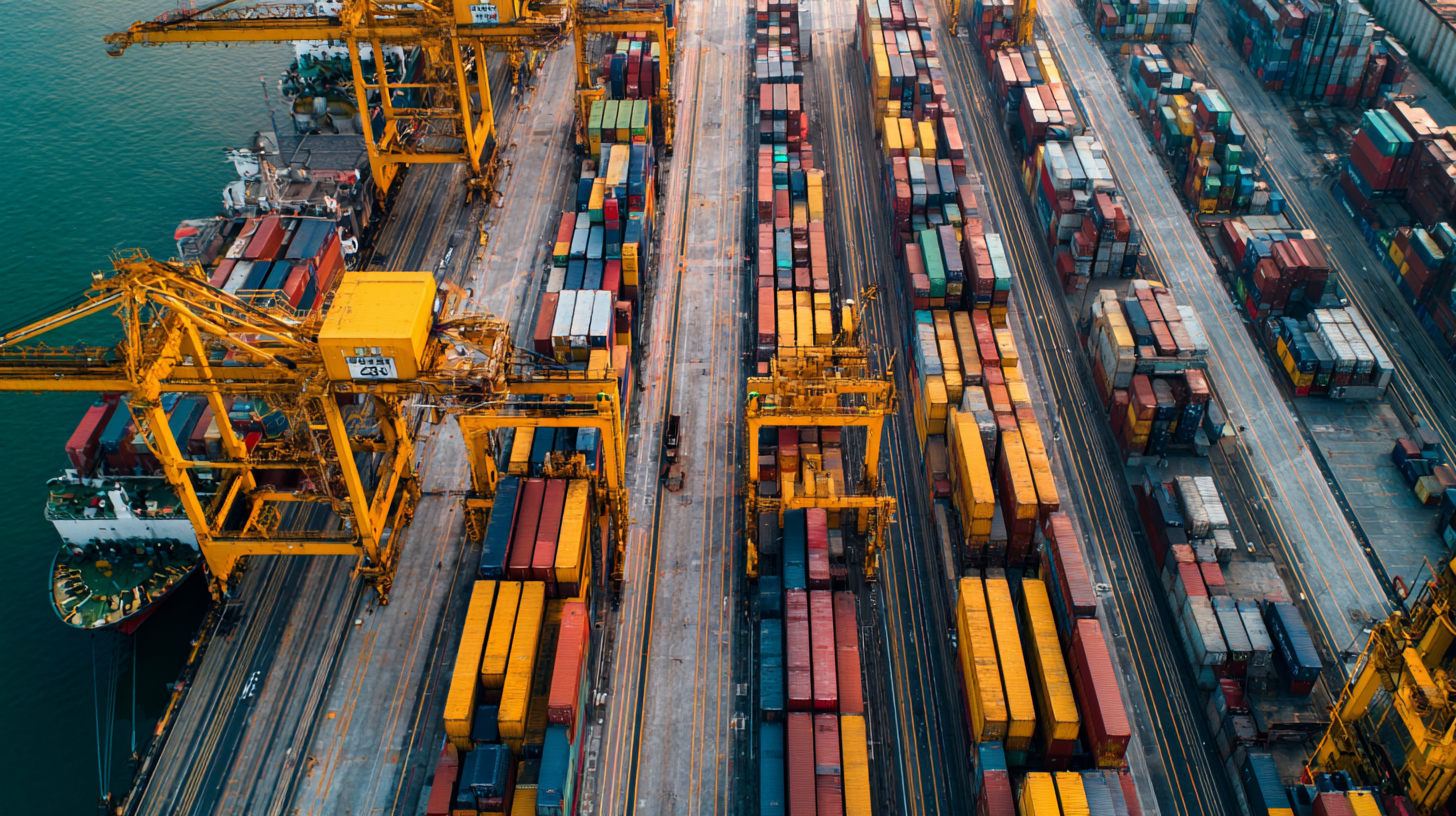Navigating Import Export Certifications for the Best Solar Energy Products Worldwide
As the global demand for renewable energy solutions continues to accelerate, the solar energy industry is witnessing unprecedented growth. According to the International Energy Agency, solar power accounted for nearly 60% of the world's total renewable energy capacity added in 2021, underscoring its pivotal role in the transition to a sustainable energy future.

With China's manufacturing prowess leading the charge, the nation has become a major supplier of solar energy products worldwide, focusing on quality enhancement to meet international standards. In fact, reports suggest that China's solar panel exports reached a staggering USD 30 billion in 2022, driven by rigorous import-export certifications that ensure product reliability and performance.
As we navigate the complexities of these certifications, understanding the implications for sourcing the best solar energy products becomes essential for stakeholders aiming to thrive in this competitive landscape.
Understanding Import Export Certifications for Solar Energy Products
 Understanding import-export certifications for solar energy products is crucial for companies looking to thrive in the global market. These certifications serve as a guarantee that solar products meet specific safety, performance, and environmental standards, which are essential for both manufacturers and consumers. Since solar energy adoption varies significantly across countries, understanding local regulations and certifications is key to ensuring compliance and facilitating smoother international trade.
Understanding import-export certifications for solar energy products is crucial for companies looking to thrive in the global market. These certifications serve as a guarantee that solar products meet specific safety, performance, and environmental standards, which are essential for both manufacturers and consumers. Since solar energy adoption varies significantly across countries, understanding local regulations and certifications is key to ensuring compliance and facilitating smoother international trade.
Different regions have their unique certification requirements. For example, products sold in the European market often need to comply with the CE mark standards, which assure consumers of their safety and reliability. In contrast, the United States places emphasis on the UL certification, which signifies that the products have been tested for safety. Navigating these differing requirements can be complex, but it's essential for businesses to ensure that their solar energy products not only meet local demands but also enhance their global competitiveness.
By investing time in understanding and obtaining the right certifications, companies can achieve market entry while building consumer trust.
Key Certification Standards for High-Quality Solar Equipment in China
When it comes to sourcing high-quality solar energy products in China, understanding the key certification standards is essential. These certifications not only ensure the safety and reliability of solar equipment but also facilitate smoother international trade. Among the most recognized standards are the International Electrotechnical Commission (IEC) certifications, which signify that solar panels have been rigorously tested for performance, safety, and durability. Compliance with these standards is crucial for manufacturers aiming to penetrate global markets and build credibility with international buyers.
Additionally, consider the China Compulsory Certification (CCC) mark, which serves as a mandatory quality assurance for products sold in the Chinese market. This certification covers a broad range of electrical items, including solar energy products, and helps ensure that they meet Chinese national safety standards. Other significant certifications include TUV Rheinland and UL (Underwriters Laboratories), both of which are globally respected for their stringent testing criteria. By prioritizing these certifications, businesses can not only enhance the quality of their solar products but also gain a competitive edge in the fast-growing renewable energy sector.
The Growing Global Demand for Solar Energy: Statistics You Need to Know
The demand for solar energy is witnessing unprecedented growth, driven by an increasing global emphasis on sustainable energy solutions. According to the International Energy Agency (IEA), renewable energy sources, led by solar power, are set to account for 30% of global electricity generation by 2025. Furthermore, the Solar Energy Industries Association (SEIA) reports that the U.S. solar market alone could grow to nearly 300 GW by 2030, a substantial leap from its current level. This surge highlights the urgent need for solar products that meet international import-export certifications, ensuring quality and efficiency.
Tip: When sourcing solar energy products, always check for certifications such as IEC 61215 and IEC 61730 to guarantee that the products meet rigorous international standards. This helps avoid potential pitfalls in quality and compliance when navigating global markets.
As the solar energy sector expands, statistics reveal a diverse market landscape. A report from Bloomberg New Energy Finance indicates that global solar investment reached a staggering $131 billion in 2020, showcasing a commitment to a low-carbon future. In addition, emerging economies are investing heavily in solar technology, with countries like India expecting 300 GW of solar capacity by 2030. Staying informed about such trends is essential for businesses looking to thrive in this fast-evolving industry.
Tip: Keep an eye on regional market trends and government incentives to capitalize on opportunities in various countries, as these can significantly impact the export and import regulations for solar products.

Navigating Trade Regulations: A Guide for Importers and Exporters of Solar Products
Understanding trade regulations is crucial for both importers and exporters of solar energy products. As the global demand for renewable energy sources continues to rise—with the International Energy Agency predicting that solar energy could account for 60% of global renewable electricity by 2030—navigating the legal landscape becomes increasingly important. Importers must be aware of various certifications, such as the IEC 61215 and IEC 61730 standards, which evaluate the performance and safety of solar products. Moreover, staying updated on tariffs and trade agreements can significantly impact profit margins and market access.
Tips: When importing solar products, ensure you conduct thorough due diligence on the certifications required in your country. Engaging with a customs broker can help streamline the import process and mitigate potential delays.
For exporters, understanding the specific regulations of the target market is vital. Countries may have their own unique requirements for product certification, labeling, and safety standards. The World Bank's report on global trade highlights that compliance with local regulations not only facilitates smoother transactions but can also enhance the reputation of your brand.
Tips: Building relationships with local distributors and industry associations can provide valuable insights into market expectations and regulatory changes, ensuring compliance and fostering business growth.
Quality Control in Solar Manufacturing: Why Certifications Matter
Quality control is paramount in the solar manufacturing industry, where standards determine not only the performance of solar energy products but also their safety and reliability. Certifications serve as a vital benchmark, ensuring that products meet strict criteria established by international and national organizations. They instill confidence in consumers and businesses alike, reassuring them that the solar panels and components they are investing in have undergone rigorous testing and evaluation.
Moreover, the presence of recognized certifications can significantly influence market access and competitiveness. In a global landscape where import and export regulations vary, certified products often have an advantage, as they are more likely to comply with various legal requirements in different countries. This is particularly critical in the renewable energy sector, where governments increasingly mandate compliance with sustainability standards. By prioritizing certified products, manufacturers not only enhance their marketability but also contribute to the overall growth and credibility of the solar energy industry, paving the way for a more sustainable future.
Contact Details
Address:
Solar Pump Solutions,
Borrisokane, Co. Tipperary, Ireland.
